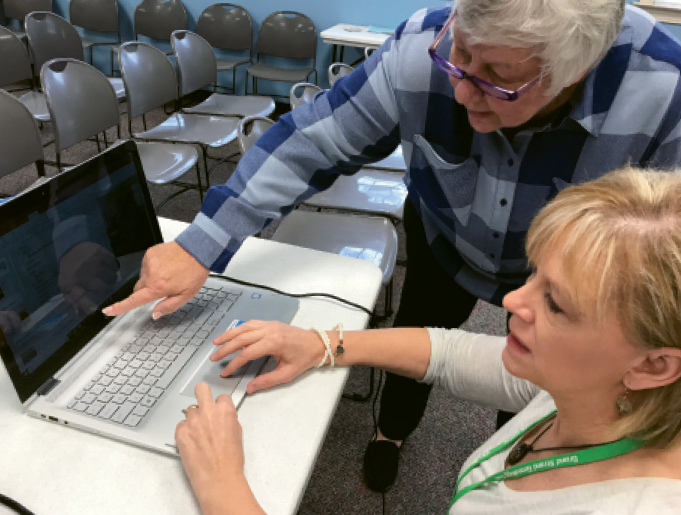The Grand Strand Genealogy Club helps uncover ancestries

Is there anyone who hasn’t been curious about their ancestry at some time in their life? Where did my great-grandparents live? Am I related to someone famous? Do I have cousins I’ve never met? Do I have an ethnic mix of which I’m not even aware?
The Grand Strand Genealogy Club was formed in 2002 to help individuals research their family lineage and answer these questions and more. It is a well-established organization serving more than 165 members along the Grand Strand. No dues or fees are charged and meetings are held at 10 a.m. on the second Saturday of every month at Chapin Memorial Library (14th Avenue North and Kings Highway) in Myrtle Beach.

“Everyone is welcome,” said club president Charlene Carson. “We strive to provide great speakers and help members with their research, so it’s often standing room only at these meetings. Our mission is to help people better pursue their ancestry and family lineage.”
Guest speakers cover a wide range of topics, including research methods and sources, solving difficult searches, use of modern technology, accessing government and church records and databases, how to do DNA testing and more. The more savvy veteran members are eager to help novices pursue their searches with immigration records, birth/death certificates, education and military service records, citizenship papers, steamship records and more.
Carson, like several veteran club members, is quite advanced in her genealogy research techniques. She has located a number of relatives in Poland, where many of her ancestors emigrated from, and has visited them in their homeland. She has also assisted countless members in getting their own searches launched.
“Our meetings often feature special interest areas such as a regional focus like Irish immigrants or Eastern European immigrants, Native American culture, African American culture—including slave descendants and Gullah Geechee culture—and much more,” said Carson. “Our officers and more experienced members are happy to help new members who are having difficulty by showing them how to use the research tools that are available and navigate the myriad government and church records and databases.”

Meetings quite often bring surprise findings. DNA technology has provided the means for some members to identify and locate family. It’s a very emotional experience when a long lost or unknown family member is finally connected.
Once yearly, the club takes on “problem ancestors” where people have run into dead ends in their research. Veteran researchers team with these people over a two-month period to help dig deeper and try other methods to “break through the wall” and find more information on those particular lineages. More often than not, they find success.
Additionally, the club encourages utilization of the resources available at the Family History Center (FHC) at the Church of Jesus Christ of Latter-Day Saints on 48th Avenue North and 17 Bypass. The church has an enormous global database and volunteer researchers available to help club members and the general public on Wednesday evenings in searching their ancestry.
“Genealogy is much more than a fun hobby—it is a door to every family’s exciting and interesting past,” said Carson.
For more information on the Grand Strand Genealogy Club, go to www.scgsgc.org.